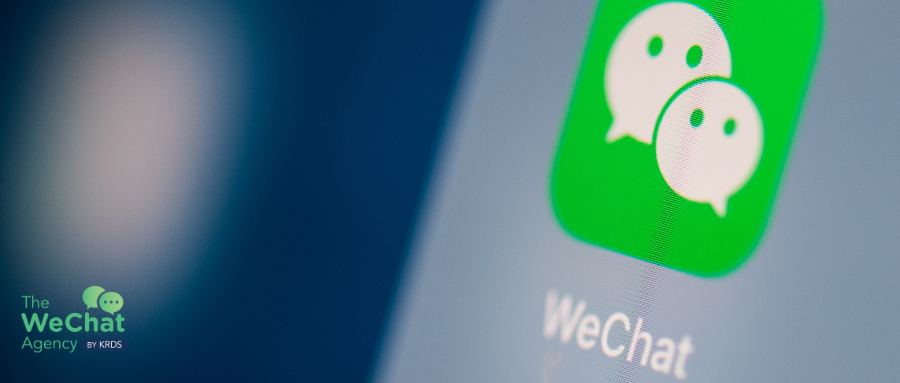China Online Advertising Market Insights 2022
- In 2022, 43% of advertisers in China expect to increase spending on digital marketing,
- The top online advertising media are:
- E-commerce 47%,
- a short video (16.6%)
- News (16.6%)
- In 2021, short video advertising continued to expand at a rate of over 31%.
- Platform traffic, which accounts for 74% of a brand’s advertising budget, is the most important KPI.
- 70% of advertisers indicated they’d pay greater attention to the platform’s ability to innovate.
- 90% of advertisers feel that integrated marketing is becoming increasingly crucial.
- After short videos, live broadcasts, and newsfeed ads, SEM is predicted to become the primary online advertising channel by 2022. (since 2019, Tencent, and Alibaba set up independent search engines to strengthen the integration entrance function of each service module).
Content ecology search ads are search ads on content platforms such as Toutiao, Douyin, Xiaohongshu, Zhihu, etc. SEM are search ads on search engines such as Baidu and Sogou. E-commerce ecology search advertising includes search ads on e-commerce platforms such as Taobao Search, JD search and Pinduoduo search. Social ecology search advertising includes search ads on social platforms such as Weibo and WeChat
Link: https://www.chinainternetwatch.com/31087/online-advertising-market/
‘The NFT Thingy Is Starting to Burst,’ Warns Nassim Nicholas Taleb
The NFT thingy is starting to burst. All you need is higher interest rates for things that make no sense to start making no sense.
“Jack Dorsey Tweet NFT Once Sold for $2.9 Mil, Now Might Fetch Under $14K”.
The origins of speculative investments like NFTs are ultralow interest rates and market pandemic monetary policy.
The market has been anticipating the end of the market epidemic monetary policy of ultralow interest rates and cheap money for some time. Taleb appears to be saying that much of the cheap money has gone into speculative investments like NFTs and that this trend is ending. “People have lost their minds,” C.Z. Zhao, the billionaire creator of Binance, remarked of the $69 million auctions of an NFT piece of artwork in 2021.
Others like the recipient of that $69 million fortune, an artist known as Beeple, also worried that NFT art was in a bubble but believe the technology is going to outlive that.
He said that the internet, in its nascence, was also a bubble—and it eventually burst.“But it didn’t wipe out the internet,” he said. “And so the technology itself is strong enough where I think it’s going to outlive that.” A whopping $44 billion was spent on NFTs last year, Fortune previously reported.
WeChat Announces Progress on Fix for Enforced Following of Accounts While Ordering
- When consumers wish to prebook, queue or order from an online menu in a restaurant, one of the most popular methods is to scan a QR code to gain access to the menu.
- Users are often obliged to follow the restaurant’s official WeChat account as a result of this, with no option to opt-out. Many people have viewed the approach as a violation of consumers’ rights.
- The Shanghai Consumers Council concurred and proposed that little if any, personal information be carried through when clients scan to order. Furthermore, eateries should provide manual ordering choices as well.
- It sent a notice to official account developers, asking them to look into a problem in which customers are obliged to use official WeChat accounts while ordering through QR codes at restaurants. The platform is reminding developers, according to the letter, to check for any associated issues and to guarantee that the client experience is overall positive.
The End of Celebrity Marketing in China?
Celebrity marketing events in March 2022 fell by 50.9% compared to the same period last year, according to a recent analysis by Shiqu Insight Engine.
Co-branded marketing and new product marketing, on the other hand, increased by 91.3% and 57.6%, respectively, while sports marketing increased by 6.6 times. Brands that fail to respond swiftly enough to their ambassadors’ inappropriate behaviour are also caught in the crossfire.
Link: https://jingdaily.com/celebrity-marketing-traffic-stars-decline/
Consumers Hope to Get Rewards from the Brand for Loyalty | 2022 Digital Trend Report
Cheetah Digital, a marketing platform company, and consultancy, a consulting firm, jointly released the 2022 digital trend report.
The report shows that consumers want their loyalty to the brand to be recognized.
The study investigated the different reasons why consumers like brands and found that 78% of consumers like a brand because it rewards their loyalty.
In addition to being rewarded for their loyalty, consumers also believe that their favourite brands provide a consistent customer experience (80%).
About a third of people feel frustrated when they receive news that they cannot recognize their shopping or loyalty history.
Similarly, data trust is also important. Consumers surveyed (74%) claimed to have a favorite brand because it uses their data in a way that makes them feel comfortable.
Knowing this, marketers are taking various approaches to try to build trust in their data privacy protection, including a commitment not to sell information and seeking informed consent.
51% of consumers like a brand because they can communicate with the brand quickly and effectively.
Personalization is important for understanding consumer preferences. When consumers receive irrelevant content or offers (49%), when the message does not reflect their needs (41%), or when the brand fails to meet the needs of consumers after collecting information (35%), people are frustrated.
Consumers seem to be particularly open to certain areas of brand information.
Respondents said they either received the right amount of information or were even willing to receive more information about loyalty programs (71%), discounts (70%), VIP offers (68%) and brand value (65%).
Link https://mp.weixin.qq.com/s/jXgbVdVDV7V54P5nmN9YWw
Elon Musk Makes Offer to Buy Twitter
On April 4th, 2022, Elon Musk announced that he had purchased 9.1% of Twitter. The news that the world’s richest man was now (briefly) the largest shareholder in his preferred social media platform. However, later on, he changed his idea to purchase the entire company. He offered $54.20 a share, valuing the company at roughly $43 billion.
- Employees at Twitter are worried about Elon Musk’s takeover bid.
Things were a little different within Twitter. The news that Mr Musk wanted to buy the company and reshape it in his image shook much staff over the last ten days.
- Musk wants to ‘unlock’ Twitter’s potential for free speech
“I invested in Twitter as I believe in its potential to be the platform for free speech around the globe,” Mr Musk said in a letter sent to Bret Taylor, the chair of Twitter’s board, on Wednesday. “I believe free speech is a societal imperative for a functioning democracy.”
Mr Musk has long used Twitter to slam critics, mock Tesla short-sellers, and suggest extravagant space exploration plans. In addition, he has distributed false information concerning the pandemic. In a tweet in 2018, he pondered about taking Tesla private and falsely stated he had secured finance for the transaction, for which he was fined $40 million by the Securities and Exchange Commission.
According to the letter written to Twitter’s chair, if Mr Musk’s buyout offer is not approved, he will “need to reconsider my position as a shareholder”.
Link: https://www.nytimes.com/live/2022/04/14/business/elon-musk-twitter
Secondhand Luxury Is Key for China’s First Time Buyers
In 2021, Chinese consumers are expected to spend $73.6 billion on luxury goods in domestic stores, up significantly from $53.6 billion in 2020 and nearly double the $36.9 billion spent in 2019.
Because Chinese younger people, mostly millennials and Gen Zers, are increasingly inclined to purchase secondhand luxury products, there could be a secondhand luxury boom in 2022.
The main reasons are as follows,
- With international travel still unlikely for many consumers and viruses threatening offline retail, young consumers may turn to e-commerce for the convenience factor.
- There are always long waits in queue to get a limited edition or it requires to purchases a package deal in the offline shop to get a brand-new product. While the younger generations are not that patient, they prefer to get what they want right now.
- The price hicks in those luxury brands like LV, and Chanel drives more consumers to the secondhand luxury market.
The issue in this sector right now is that there is no clear market leader. As a result, market challenges such as authentication and fakes continue to exist.
International luxury resale platforms aiming to get into the Chinese market will also need to think about more differentiators to help them compete with domestic rivals. Global players can compete in two ways: by stressing their ability to source from other countries and by boasting about their authentication credentials.
After all, the greatest service should be the deciding element for customers in this luxury resale e-commerce site.
Link: https://jingdaily.com/secondhand-luxury-is-key-for-chinas-first-time-buyers/

